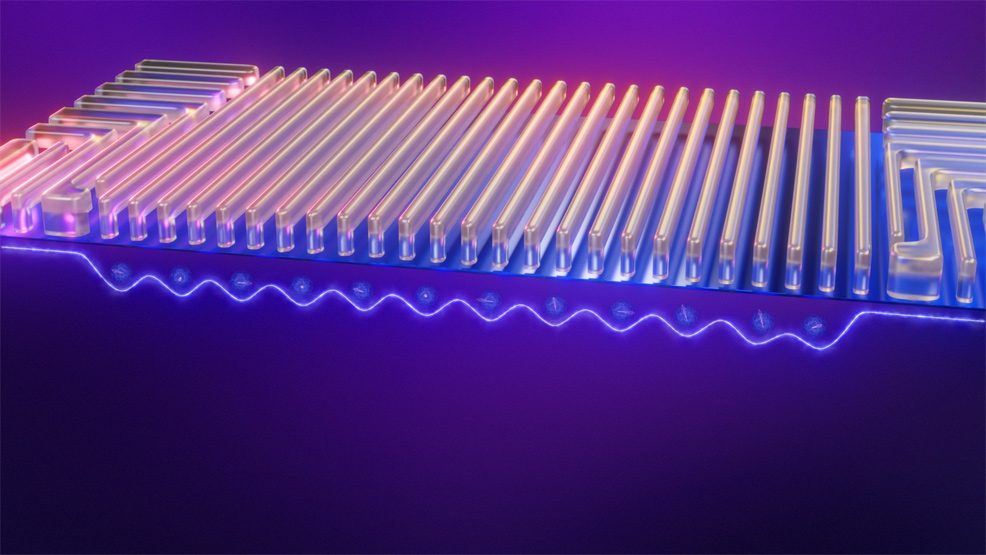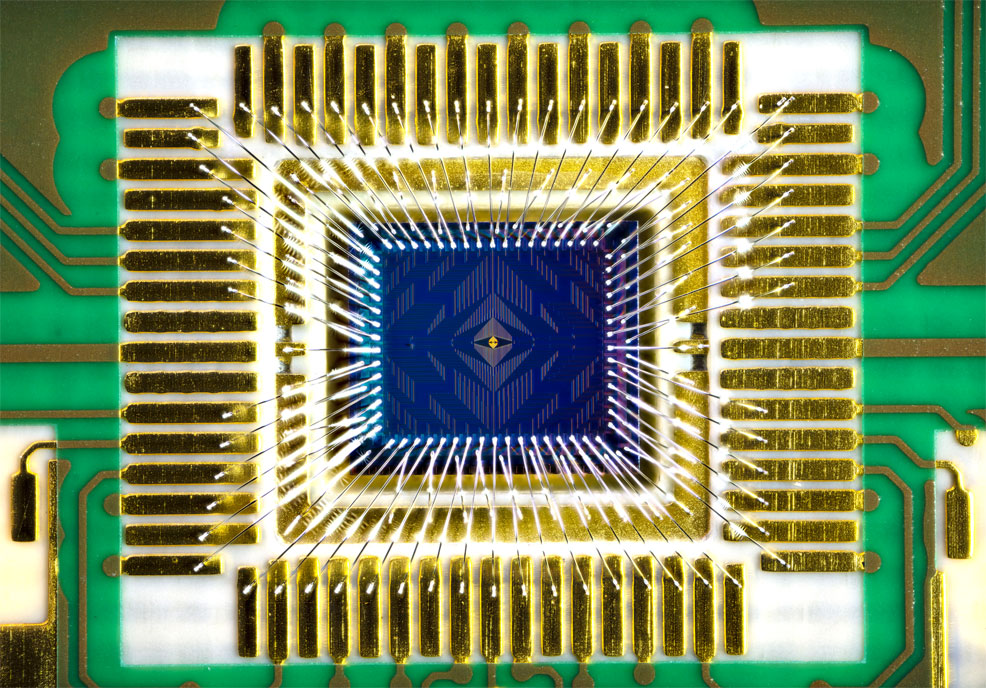
19th June 2023 Intel announces new quantum chip for research The new 12-qubit "Tunnel Falls" chip announced by Intel packs important features into its tiny form factor that could help accelerate research in quantum computing.
Intel has announced a new 12-qubit "silicon spin" chip, Tunnel Falls, and is making it available to the research community. In addition, Intel is collaborating with the Laboratory for Physical Sciences (LPS) at the University of Maryland's Qubit Collaboratory (LQC), to advance quantum computing research. Currently, academic institutions lack high-volume manufacturing fabrication equipment like Intel. With Tunnel Falls, researchers can immediately begin working on experiments and research, instead of trying to fabricate their own devices. As a result, a wider range of experiments will become possible, including learning more about the fundamentals of qubits and quantum dots and developing new techniques for working with multiple qubits. "Tunnel Falls is Intel's most advanced silicon spin qubit chip to date and draws upon the company's decades of transistor design and manufacturing expertise," said Jim Clarke, director of Quantum Hardware at Intel. "The release of this new chip is the next step in Intel's long-term strategy to build a full-stack commercial quantum computing system. While there are still fundamental questions and challenges that must be solved along the path to a fault-tolerant quantum computer, the academic community can now explore this technology and accelerate research development."
Intel's collaboration with LQC is part of the Qubits for Computing Foundry (QCF) program, facilitated by the U.S. Army Research Office, to provide the new chip to research laboratories. According to Intel, this will help to "democratise" silicon spin qubits, by enabling researchers to gain hands-on experience working with scaled arrays of these qubits. The project aims to strengthen workforce development, open the doors to new research and grow the overall quantum ecosystem. The first quantum labs to participate in the program include LPS, Sandia National Laboratories, the University of Rochester and University of Wisconsin-Madison. LQC will work alongside Intel to make Tunnel Falls available to additional universities and research labs. The information gathered from these experiments will be shared with the community to advance quantum research and to help Intel improve both qubit performance and scalability. "Sandia National Laboratories is excited to be a recipient of the Tunnel Falls chip," said Dr. Dwight Luhman, distinguished member of Technical Staff at Sandia National Laboratories. "The device is a flexible platform enabling quantum researchers at Sandia to directly compare different qubit encodings and develop new qubit operation modes, which was not possible for us previously. This level of sophistication allows us to innovate novel quantum operations and algorithms in the multi-qubit regime and accelerate our learning rate in silicon-based quantum systems. The anticipated reliability of Tunnel Falls will also allow Sandia to rapidly onboard and train new staff working in silicon qubit technologies."
Tunnel Falls is Intel's first silicon spin qubit device released to the research community. Fabricated on 300-millimetre wafers, the 12-qubit device leverages Intel's most advanced transistor industrial fabrication capabilities – such as extreme ultraviolet lithography (EUV) and gate and contact processing techniques. In silicon spin qubits, information (the 0/1) is encoded in the spin (up/down) of a single electron. Each qubit device is essentially a single electron transistor, which allows Intel to fabricate it using a similar flow to that used in a standard complementary metal oxide semiconductor (CMOS) logic processing line. Using advanced CMOS fabrication enables Intel to incorporate innovative process control techniques, for better yield and performance. Tunnel Falls has a 95% yield rate across the wafer, for example, along with voltage uniformity like a CMOS logic process, and each wafer can provide over 24,000 quantum dot devices. Intel believes that silicon spin qubits are superior to other qubit technologies because of their synergy with leading-edge transistors. Being the size of a transistor, they are up to 1 million times smaller than other types of qubits, measuring just 50 nanometres by 50 nanometres, potentially allowing for efficient scaling. Indeed, a recent study in Nature Electronics concluded that "silicon may be the platform with the greatest potential to deliver scaled-up quantum computing." Intel will continue working to improve the performance of Tunnel Falls, in order to integrate the device into its full quantum stack with the Intel Quantum Software Development Kit (SDK). The company is already developing a next-generation chip to succeed Tunnel Falls, expected to be released in 2024.
Comments »
If you enjoyed this article, please consider sharing it:
|









